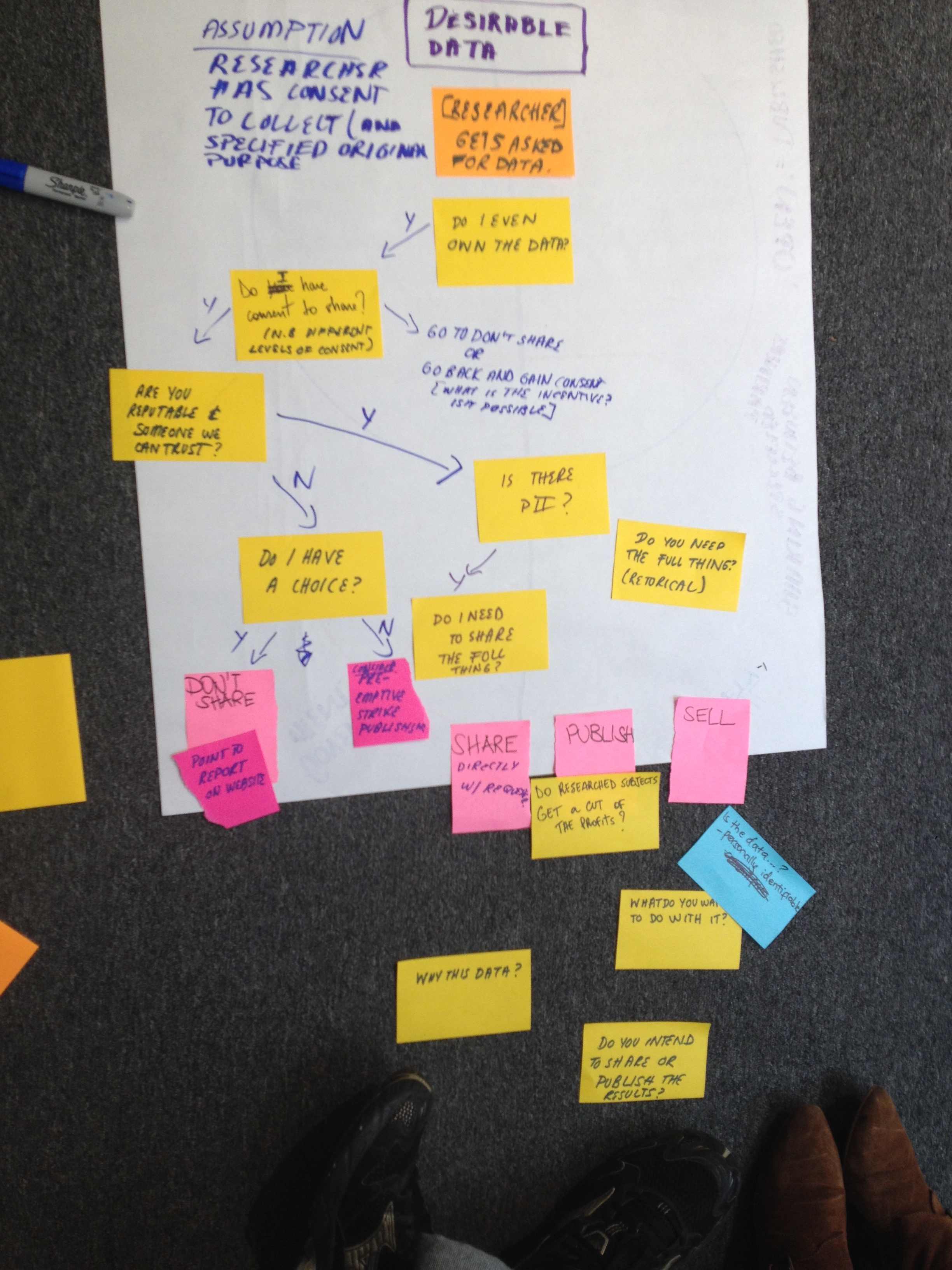Frameworks for data sharing
AKA: the lubrication session: how to get data flowing between organisations
We made good progress in this session, mapping out a possible decision tree for quite a specific scenario: where an NGO is approached with a request to use their data (still a work in progress - but you can see how far we got below).
We didn't map out all of the specific eventualities, but there were some key takeaways:
1. The order in which some questions need to be asked e.g. questions around ownership should come very early on in the process (if you haven't sorted that - you did not really have the right to do anything else.)
2. "Preemptive strike publishing" We also discussed some counter-intuitive - but smart data flow practices - inspired by the current situation in Hungary. Certain NGOs funded by a Norwegian are currently being requested to hand over data to the government and are choosing to proactively publish online, rather than hand over the data to the government - so it was clear to all what data they had collected if anything should happen to them. (Clearly - this is not suitable for all circumstances!)
In the end, we realised we were possibly coming at the problem from entirely the wrong angle. We were assuming a very protective stance (the bad people are coming to get my data) over the data, rather than thinking about possible benefits of opening up certain datasets - then seeing if it could be done responsibly. Hence, we Instead, we should be trying to map out categories of data which an NGO might hold and establish which types might be more or less useful and more or less risky to release for purposes of reuse.
But, watch this space - we will be back soon with an update once we have flipped it on its head.
